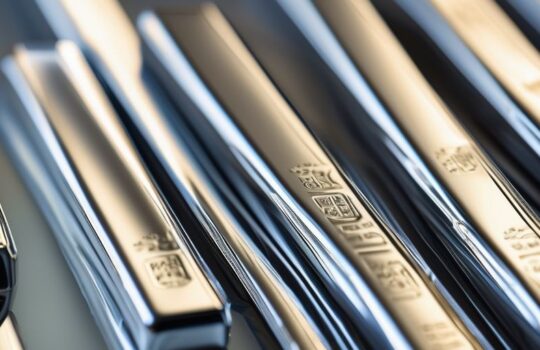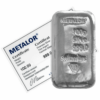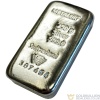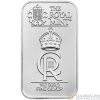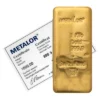A Guide to Purchasing Gold Bullion in the UK: What You Need to Know

In the United Kingdom, purchasing gold bullion can be a lucrative investment opportunity, but it requires careful consideration and understanding of the market. This guide will provide you with essential information on how to navigate the process of buying gold bullion in the UK.
Key Takeaways
- Understand the different types of gold bullion available in the UK market.
- Consider the purity and weight of the gold bullion before making a purchase.
- Explore various storage options to keep your gold bullion safe and secure.
- Research reputable sources and dealers when buying gold bullion in the UK.
- Stay informed about market trends and selling strategies to maximise your returns when selling gold bullion.
Understanding Gold Bullion
Types of Gold Bullion
When we consider investing in gold bullion, we’re presented with a variety of options. Gold bullion coins and bars are the most common forms that investors and collectors alike gravitate towards. Each type has its own unique attributes and benefits.
- Coins: Often produced by government mints, these are legal tender and can come with a face value. Their design, history, and rarity can add collectible value over and above the gold content.
- Bars: These are the choice for those looking to acquire more gold for their money, as they typically have lower premiums over the spot price of gold compared to coins.
It’s crucial to understand the differences between these types to make informed decisions about which form aligns with our investment goals.
For instance, The Royal Mint offers a selection of gold bullion coins, including the renowned Britannia and The Queen’s Beasts, both available in 999.9 fine gold. On the other hand, The Sovereign is a coin steeped in history, available in 916.7 fine gold.
Purity and Weight
When we consider investing in gold bullion, the purity and weight are crucial factors that determine the value of our investment. Gold bullion is typically available in various purities, with 24 carats being the purest form. However, it’s essential to understand that the weight of gold is traditionally measured in troy ounces. One troy ounce is equivalent to approximately 31.1 grammes.
Purity is often stamped on the bullion as a hallmark, indicating the percentage of gold content. For instance, a 22-carat gold piece contains 91.6% gold, with the remainder being other metals to enhance durability. Here’s a quick reference table for common purities:
| Carat | Gold Content (%) |
|---|---|
| 24 | 99.9 |
| 22 | 91.6 |
| 18 | 75.0 |
| 14 | 58.3 |
It’s imperative to verify the purity and weight of gold bullion before purchasing, as these attributes directly impact its market value and resale potential.
We must also be mindful of the fact that the weight can affect storage and security considerations. Larger bars, while offering a lower premium over the spot price of gold, may require more secure storage solutions. Conversely, smaller units, such as coins or smaller bars, provide greater flexibility but may come with higher premiums.
Storage Options
Once we’ve acquired gold bullion, it’s imperative to consider secure storage options. Safety and accessibility are paramount when it comes to storing our precious investments. We can opt for home safes, bank safe deposit boxes, or professional bullion storage facilities. Each option comes with its own set of benefits and considerations.
- Home Safes: Offers immediate access but requires robust security measures.
- Bank Safe Deposit Boxes: Provides high security but limited access and may incur rental fees.
- Professional Storage: Ensures maximum security and insurance, though it can be costlier and less accessible.
It’s essential to balance the need for security with ease of access. We must also be mindful of the costs associated with each storage solution.
When exploring storage solutions, we should also look into the services offered by various providers. For instance, a website page offers a variety of silver bars for sale, including Umicore, GBD, and Metalor brands. This indicates that some vendors may also provide storage options, which could be convenient for us to consider.
Buying Gold Bullion
Where to Buy
When we consider purchasing gold bullion, the question of where to buy becomes paramount. Physical stores and online platforms are the primary sources for acquiring gold. Each offers its own advantages, such as the ability to physically inspect the product at a store or the convenience of shopping from home when using an online service.
- Physical retailers include coin shops, jewellery stores, and specialised bullion dealers.
- Online options range from e-commerce websites to auction platforms and dedicated bullion marketplaces.
It’s crucial to ensure that the dealer is reputable and offers fair pricing. We recommend conducting thorough research and reading reviews before making a purchase.
For instance, the Umicore 10 Gramme Gold Bar is a popular choice among investors. It’s known for its purity, trustworthiness, and accessibility, serving as a stable asset for diversifying portfolios.
Factors to Consider
When we’re in the market for gold bullion, it’s crucial to weigh several factors before making a purchase. Reputation of the dealer is paramount; we must ensure we’re dealing with trustworthy sources to avoid counterfeit products and fraud. It’s not just about the price, but the peace of mind that comes with knowing our investment is genuine.
Quality of the gold is another significant consideration. We look for bullion that meets the standard fineness or purity levels. This is typically expressed in karats or fineness, with 24 karats or 999.9 fineness being the purest form of gold available.
We must also think about the future. How will we store our gold? Is it safe and secure? Will we insure it against theft or loss? These questions are essential in our decision-making process.
Lastly, we consider the size and weight of the bullion. This can affect liquidity and potential resale value. Here’s a simple list of factors we always keep in mind:
- Dealer’s reputation
- Quality and purity of gold
- Storage and insurance options
- Size and weight of bullion
By carefully considering these aspects, we can make informed decisions that align with our investment goals.
Pricing and Fees
When we delve into the realm of purchasing gold bullion, we must be acutely aware of the pricing and fees involved. The price of gold is dynamic, changing with market conditions, and is typically quoted per ounce. It’s crucial to monitor these prices regularly to ensure we’re making informed decisions.
In addition to the market price, we must consider various fees that can affect the total cost. These may include dealer premiums, which is the markup over the spot price of gold, as well as possible shipping and insurance costs if we’re not buying in person. Here’s a simplified breakdown of potential fees:
- Dealer Premium
- Shipping Costs
- Insurance
- Storage Fees (if opting for custodial storage)
It’s also important to note that some dealers may offer discounts for bulk purchases or for certain payment methods. We should always inquire about these possibilities to potentially reduce our overall expenditure.
Remember, while the allure of gold can be strong, we must approach each transaction with a clear understanding of all costs involved to avoid any unwelcome surprises.
Lastly, when we’re ready to sell, these fees can also impact our returns. It’s wise to keep records of all expenses to accurately calculate our gains when the time comes. Being meticulous with our documentation will serve us well in the long run.
Selling Gold Bullion
Selling Process
When we decide to sell our gold bullion, the process can be straightforward if we’re well-informed. Firstly, it’s crucial to have all the necessary documentation ready, including proof of purchase and any certificates of authenticity. This ensures a smooth transaction and can help us secure the best price.
Dealers play a significant role in the selling process. We should look for reputable gold bullion dealers offering to purchase various precious metal items at leading market rates. It’s wise to choose a dealer with a strong track record; for instance, a trusted dealer with over 25 years of experience in buying and selling gold products.
Remember, the condition of the gold bullion can significantly affect its resale value. Always handle your gold with care to maintain its condition.
Here’s a simple checklist to follow when preparing to sell gold bullion:
- Verify the current gold price
- Gather all relevant paperwork
- Choose a reputable dealer
- Consider the timing of the sale
By adhering to these steps, we can ensure a more effective and profitable selling experience.
Market Trends
We’ve observed that the gold market is highly sensitive to global economic and political events. The price of gold often reflects the level of uncertainty in the market, making it a go-to asset for investors during times of instability. For instance, as the UK faces various challenges, there has been a notable increase in the monthly price per ounce of gold.
It’s crucial for us to stay informed about the latest market trends to make timely decisions when buying or selling gold bullion.
Here’s a quick overview of recent price changes:
| Month | Price per Ounce (EUR) |
|---|---|
| Mar 2021 | 1,446 |
| … | … |
Understanding these trends can help us anticipate future market movements and position our investments accordingly. It’s important to remember that past performance is not indicative of future results, but it can provide valuable insights into the market’s dynamics.
Selling Strategies
When we decide to sell our gold bullion, it’s crucial to have a strategy in place. Timing is everything, and understanding the market’s ebb and flow can significantly impact our returns. We should always aim to sell when the market is on an upswing, but predicting this can be challenging.
To maximise our potential profits, we must stay informed about global economic indicators and geopolitical events that can affect gold prices. Here’s a simple list to keep in mind:
- Monitor the stock market for signs of instability
- Keep an eye on currency fluctuations, particularly the strength of the pound
- Watch out for central bank announcements or policy changes
It’s also wise to diversify our selling approach. Instead of offloading all our bullion at once, we might consider staggering sales to take advantage of different market conditions. This can help mitigate risk and potentially lead to better overall gains.
In the end, patience and a well-researched approach are our best allies. Selling in haste can lead to missed opportunities and lower profits. Let’s remember to weigh our options carefully and choose the right moment to act.
Finally, it’s important to keep transaction costs in mind. Selling through dealers or online platforms may incur fees that can eat into our profits. Here’s a quick overview of potential fees we might encounter:
| Selling Method | Typical Fee Range |
|---|---|
| High Street Dealers | 1-5% of sale value |
| Online Platforms | 0.5-3% of sale value |
| Auction Houses | Up to 15% of sale value |
By considering these factors and employing a strategic approach, we can ensure that we’re making the most of our investment when the time comes to sell our gold bullion.
Conclusion
In conclusion, purchasing gold bullion in the UK requires careful consideration and understanding of the market. It is essential to research reputable dealers, understand the various forms of gold bullion available, and be aware of the associated costs and risks. By following the guidelines outlined in this article, you can make informed decisions when investing in gold bullion. Remember, gold is a valuable asset that can provide stability and diversification to your investment portfolio.
Frequently Asked Questions
Is gold bullion a good investment in the UK?
Gold bullion is considered a reliable investment option in the UK due to its historical value and stability.
What are the different types of gold bullion available in the UK?
Common types of gold bullion in the UK include bars, coins, and rounds, each with its own advantages and considerations.
How is the purity and weight of gold bullion determined?
The purity of gold bullion is measured in carats, with 24 carats being the purest form. Weight is typically measured in troy ounces.
Where can I buy gold bullion in the UK?
Gold bullion can be purchased from reputable dealers, online platforms, banks, and specialised bullion shops in the UK.
What factors should I consider before buying gold bullion?
Factors to consider include the reputation of the seller, pricing transparency, storage options, and resale value.
What are the current market trends for selling gold bullion in the UK?
Market trends for selling gold bullion in the UK can be influenced by global economic conditions, demand for gold, and geopolitical factors.





